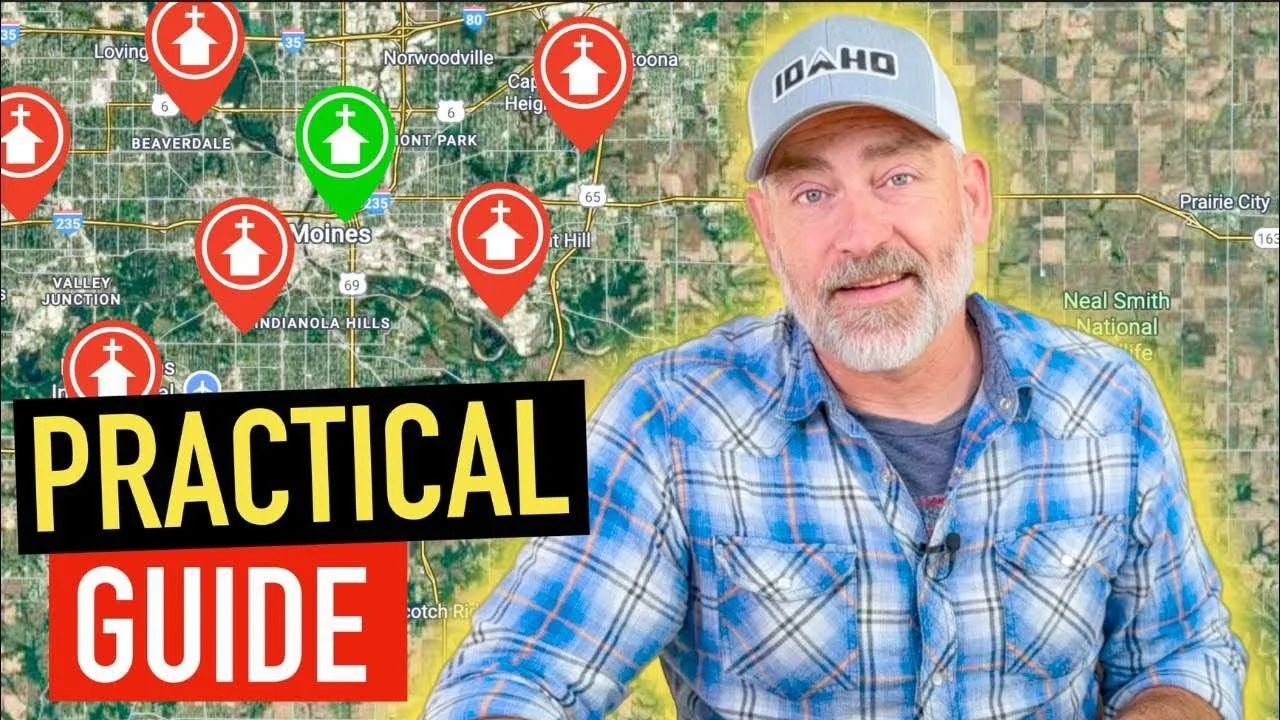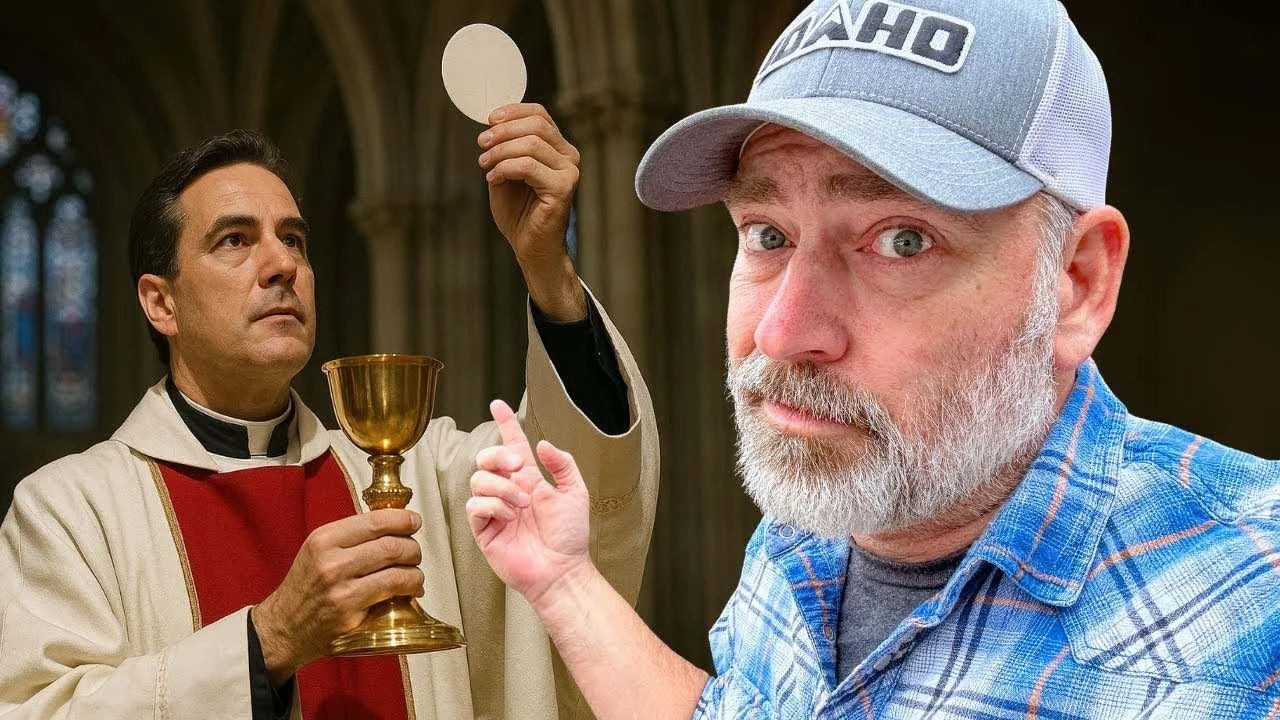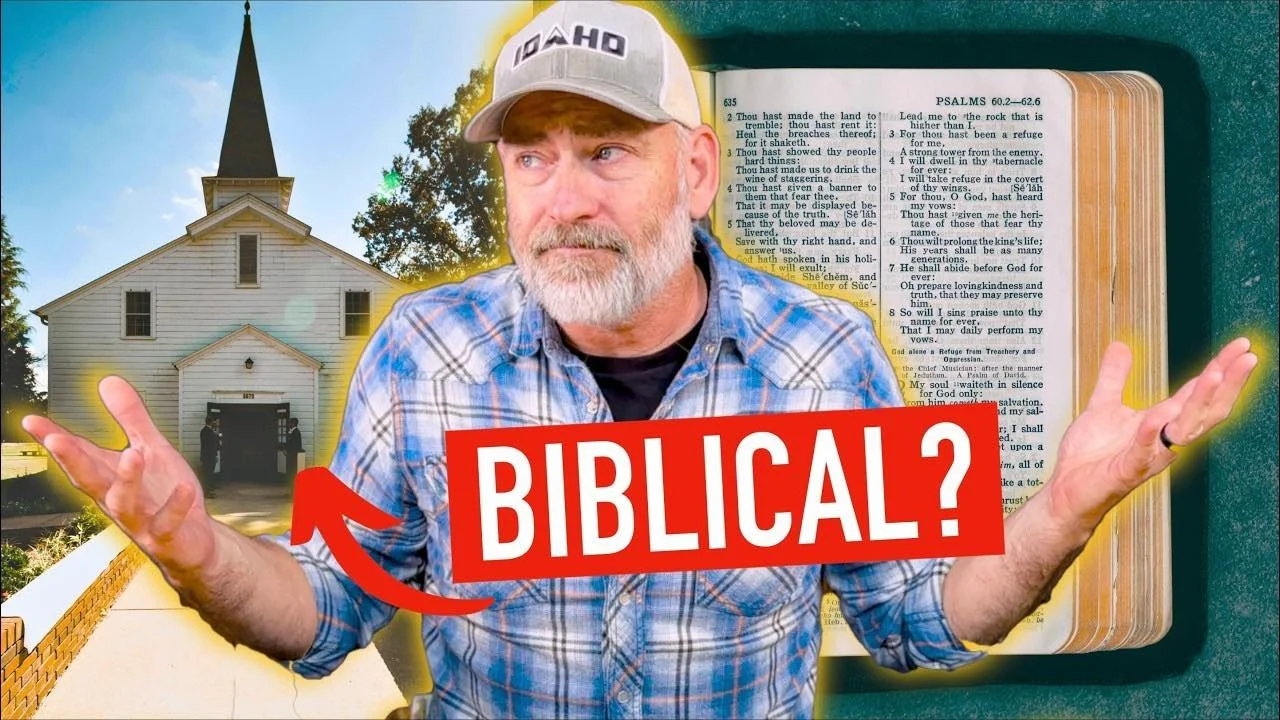The #1 Way to KNOW if a Church is Biblical
So, you’re looking for a good church to be a part of—but you’re confused by all the different options. I get it.
In our last article, “Why Are There So Many Churches,” we saw that the religious landscape is full of divisions dating all the way back to the founding of the Catholic Church, which was the first major departure from the Lord’s church. Then came the split that gave birth to the Orthodox churches. Next was the Protestant Reformation, which sparked the formation of dozens of new churches.
Over and over again, when people couldn’t get along, they split and started even more churches—until today, where we now have thousands of churches all teaching different things.
No wonder you’re confused!
So, when we’re looking for a good church to be a part of, what should we look for? Naturally, we want a church that teaches and follows the Bible. The problem is, nearly all churches will tell you that’s exactly what they do. Very few will admit that they aren’t concerned with following the Bible, or that they only follow parts of it.
So just asking if a church teaches and follows the Bible isn’t very helpful. But there are some key areas we can examine to see if they’re actually doing what they claim.
Let’s start with the number one most important thing to look for in a church. If they don’t get this right, nothing else matters:
Do they preach the same gospel the apostles preached?
What Is the Gospel?
The word “gospel” simply means good news. In the Christian context, it refers to the good news about Jesus Christ. But here’s the problem—there is more than one gospel floating around in the religious world.
Paul warned about this in Galatians:
“I am astonished that you are so quickly deserting him who called you in the grace of Christ and are turning to a different gospel—not that there is another one, but there are some who trouble you and want to distort the gospel of Christ. But even if we or an angel from heaven should preach to you a gospel contrary to the one we preached to you, let him be accursed.”
(Galatians 1:6–8 | ESV)
Paul is crystal clear: there are different gospels being preached, but only one true gospel—the one the apostles preached. And there are serious consequences for preaching a different one.
So, what exactly is this gospel?
“Now I would remind you, brothers, of the gospel I preached to you, which you received, in which you stand, and by which you are being saved, if you hold fast to the word I preached to you—unless you believed in vain.
For I delivered to you as of first importance what I also received: that Christ died for our sins in accordance with the Scriptures, that he was buried, that he was raised on the third day in accordance with the Scriptures.”
(1 Corinthians 15:1–4 | ESV)
The gospel is the message that Jesus died, was buried, and was raised on the third day—and that this was all done according to the Scriptures. This message is what saves us. Most churches will agree with that much.
But here’s where things start to differ: How does the gospel save us? Is there anything we must do in order to receive its benefits?
That’s where you start getting different answers depending on which church you ask:
Evangelical Protestants: Often say salvation is by grace through faith alone, and may use the sinner’s prayer.
Roman Catholics: Require baptism (even of infants), participation in sacraments (especially Eucharist and Confession), and staying in a state of grace.
Eastern Orthodox: Teach baptism, a life of faith and repentance, and participation in the Church’s sacramental life.
Lutherans: Emphasize justification by faith alone, but see baptism as a means of grace.
Methodists: Say salvation is by grace through faith, but stress that faith must lead to holy living.
Pentecostals: Teach faith in Jesus, but often view Holy Spirit baptism (usually with tongues) as essential.
Calvinists: Believe in unconditional election—God regenerates, then the person believes.
That’s just a small sample of the wide variety of teachings out there. But they can’t all be right.
What Must I Do to Be Saved?
With so much confusion out there, let’s go back to the Bible. Not tradition. Not opinions. Just God’s word.
1. We Must Hear the Word of God
“Truly, truly, I say to you, whoever hears my word and believes him who sent me has eternal life. He does not come into judgment, but has passed from death to life. Truly, truly, I say to you, an hour is coming, and is now here, when the dead will hear the voice of the Son of God, and those who hear will live.”
(John 5:24–25 ESV)
Hearing His word is essential. Without it, we wouldn’t even know we were lost.
2. We Must Believe the Gospel
“So faith comes from hearing, and hearing through the word of Christ.”
(Romans 10:17 ESV)
Saving faith comes from hearing Christ’s message. It’s not just a feeling—it’s our response to the truth of Jesus.
3. We Must Repent of Our Sins
“No, I tell you; but unless you repent, you will all likewise perish.”
(Luke 13:3 ESV)
In Acts 2, Peter preaches the first gospel sermon. After convicting the crowd of their sin, they ask what to do:
“‘Brothers, what shall we do?’ And Peter said to them, ‘Repent and be baptized every one of you in the name of Jesus Christ for the forgiveness of your sins…’”
(Acts 2:38 | ESV)
Also:
“Repent therefore, and turn back, that your sins may be blotted out.”
(Acts 3:19 | ESV)
Repentance means changing both your mind and your actions. It’s turning away from self and sin and turning toward God.
If you’ve been living immorally, it means pursuing holiness.
If you’ve been going to church but not obeying the gospel, it means submitting to God's plan.
If you’ve been in a denomination that teaches unbiblical doctrines, it means leaving them behind.
4. We Must Confess Jesus as Lord
“If you confess with your mouth that Jesus is Lord and believe in your heart that God raised him from the dead, you will be saved.”
(Romans 10:9–10 ESV)
5. We Must Be Baptized for the Forgiveness of Sins
Once someone has heard the gospel, believed it, repented, and confessed Jesus, they’re ready to be baptized.
And while baptism is often debated today, Scripture is clear.
“Repent and be baptized every one of you in the name of Jesus Christ for the forgiveness of your sins…”
(Acts 2:38 | ESV)
“For as many of you as were baptized into Christ have put on Christ.”
(Galatians 3:26–27 | ESV)
“And now why do you wait? Rise and be baptized and wash away your sins…”
(Acts 22:16 | ESV)
“Baptism... now saves you... as an appeal to God for a good conscience, through the resurrection of Jesus Christ.”
(1 Peter 3:21 | ESV)
“We were buried therefore with him by baptism into death… so that we too might walk in newness of life.”
(Romans 6:4 | ESV)
It’s through baptism that we are added to the Lord’s church—not by a vote, but by God Himself:
“And the Lord added to their number day by day those who were being saved.”
(Acts 2:47 | ESV)
Or, as the NKJV says:
“…And the Lord added to the church daily those who were being saved.”
6. We Must Live Faithfully
After all of that, we must continue living faithfully:
“Be faithful unto death, and I will give you the crown of life.”
(Revelation 2:10 | ESV)
Conclusion
This is the number one thing I look for when searching for a church in a new place: Are they preaching the same gospel the apostles preached?
There are many other important things to consider, but if a church doesn’t get the gospel right, nothing else matters.
If you’re attending a church that doesn’t preach the same gospel as the apostles, I encourage you to speak with your pastor. Share this article or the YouTube video. But if they’re unwilling to change, it may be time to find a scriptural church.
If you live near us, we’d love for you to come visit. You’ll find all the info you need on our Contact page.







